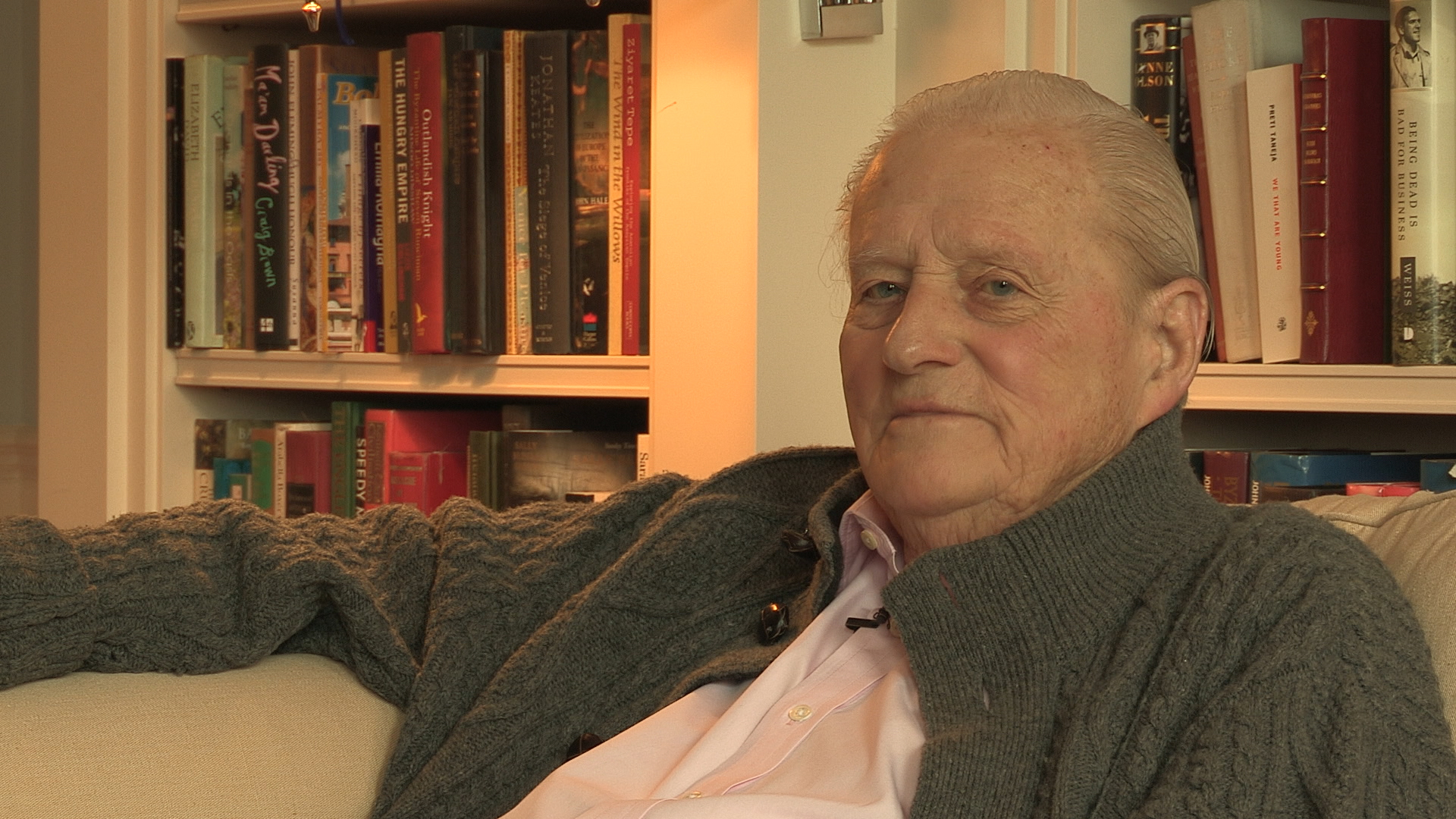NEXT STORY

Shakespeare comes to Belgrade
RELATED STORIES

NEXT STORY

Shakespeare comes to Belgrade
RELATED STORIES


|
Views | Duration | |
|---|---|---|---|
| 61. Defying my father's advice | 74 | 03:39 | |
| 62. My gratitude to the Navy | 48 | 02:14 | |
| 63. Meeting my future wife | 61 | 03:43 | |
| 64. Satisfying my wanderlust | 48 | 02:19 | |
| 65. Mummy pulls some strings again | 45 | 02:08 | |
| 66. My mother's plan backfires | 46 | 02:43 | |
| 67. Yugoslavia's unspoilt charm | 52 | 02:51 | |
| 68. House-hunting in Belgrade | 51 | 03:34 | |
| 69. Shakespeare comes to Belgrade | 57 | 04:03 | |
| 70. The vanquishing of the best car in the world | 60 | 05:01 |


When we heard that we were going to Belgrade and that there was nowhere for us to go except a hotel room, we thought well, we can't bring Artemis until we'd got somewhere to put her, and so we... my mother was only too delighted to have her at the house in Chantilly in which she was living. So, Artemis and her nanny went to Chantilly and stayed there until such time as we were able to bring them out to Belgrade, which proved to be six months or getting on for, anyway I can't quite remember, but a matter of months anyway. And then we were, it seemed we were as far away as ever from ever finding anywhere to live when a friend of mine called Jean Dorney – she was a model – came out to Belgrade with a gentleman friend and the gentleman friend was called Gerald Severne, but I don't think it was his real name, I think he was really Central European – he'd anglicised it. And he was a maker of gramophone records and what he'd wanted to do was to get really good LP recordings – we're in the 1950s, you know, everything was still very primitive. These things didn't exist. He wanted to make good LP recordings of the Russian operas. There was no way, in those days, of doing it at the Bolshoi, but the Belgrade Opera were pretty good, because they do, I mean, Belgrade... I'd say Serbia and Russia are so close and they could sing in Russian and they did regularly, and they were jolly good performances. They had wonderful voices, these wonderful, rich Slav basses, you know. So, he had come to make recordings of Boris Godunov, Khovanshchina, Prince Igor, you know, the obvious ones and he brought his, I'd imagine, his girlfriend who, as I said, happened to be a friend of mine. And so they came and called, we gave them a drink one evening in... in the hotel and said, 'You know, we still can't find anywhere to live.' And he said, 'Oh, I'm sure it can't be as hard as that.' Two days later he'd rung up a friend of his and we found a wonderful flat over an architect called Brašovan, which had never been offered for sale or for rent or anything like that before, but he'd... I mean, without him I don't think we'd ever have lived anywhere in Belgrade. As it is, we had a jolly nice flat for the last two years we were there. And so after that, really, everything changed and Artemis came out, obviously, and we had a nanny because we were still travelling around the country quite a little bit and she was only two or three or something like that. And we stayed on a little bit extra. We were doing... I was... I heard that I was going to be posted to Beirut, which was where I desperately wanted to go, and I think there was a little string-pulling there, but not by my mother, by the Lady Roberts, my boss's wife, who was, herself, Lebanese.
John Julius Norwich (1929-2018) was an English popular historian, travel writer and television personality. He was educated at Upper Canada College, Toronto, at Eton, at the University of Strasbourg and on the lower deck of the Royal Navy before taking a degree in French and Russian at New College, Oxford. He then spent twelve years in H.M. Foreign Service, with posts at the Embassies in Belgrade and Beirut and at the Disarmament Conference in Geneva. In 1964 he resigned to become a writer. He is the author of histories of Norman Sicily, the Republic of Venice, the Byzantine Empire and, most recently, 'The Popes: A History'. He also wrote on architecture, music and the history plays of Shakespeare, and presented some thirty historical documentaries on BBC Television.
Title: House-hunting in Belgrade
Listeners: Christopher Sykes
Christopher Sykes is an independent documentary producer who has made a number of films about science and scientists for BBC TV, Channel Four, and PBS.
Tags: Belgrade, Chantilly, Jean Dorney, Gerald Severne
Duration: 3 minutes, 34 seconds
Date story recorded: 2017
Date story went live: 03 October 2018
Tuesday, 21 September 2021 07:48 AM
For more on Gerald Severn: https://www.eloquenceclassics.com/decca-in-belgrade/